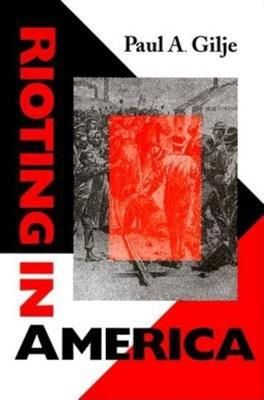Interdisciplinary Studies in History
1 total work
In this wide-ranging survey of rioting in America, Paul A. Gilje argues that we cannot fully comprehend the history of the American people without an understanding of the impact of rioting. Riots are moments when people in the street make themselves heard, when the 'inarticulate' become articulate. Basic to Gilje's approach is the assumption that mobs are rational, that they do not act merely on impulse. Exploring the rationale of the mob brings to light the grievances that motivate its behavior and the historical circumstances that drive the choices it makes. These vary greatly from event to event and across time, but Gilje detects some fascinating patterns. He proposes four phases of rioting in American history, arguing that they reflect larger social and economic trends and developments. Gilje's unusual lens makes for an eye-opening view of the American people and their history. 'Interdisciplinary Studies in History' - Harvey J. Graff, general editor.
